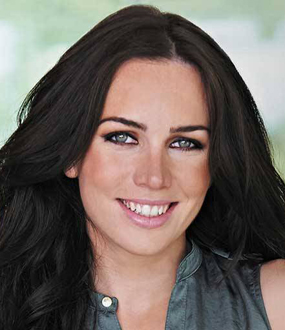Ted Talk Decision Making Poker
Liv Boeree Gives TED Talk On ‘Decision-Making Skills’ Players October 4, 2018 by Gabrielle Monet British poker pro Liv Boeree is one of the few female poker players who has found success playing poker. Boeree has worked hard on building her brand by using social media and sharing her success through different mediums. Annie Duke is an author and experienced corporate speaker and consultant on the behavior of decision making. In 2018, Annie’s first book for general audiences, “Thinking in Bets: Making Smarter Decisions When You Don’t Have All the Facts” was released by Portfolio, an imprint of Penguin Random House.
Speaker
Ruth Chang is a professor of philosophy at Rutgers University. She is known for her research on the incommensurability of values and on practical reason and normativity.

Summary
Ruth discusses how to make hard choices – between 2 jobs or partners, or whether to have children. In an easy choice one is better than the other. In a hard choice each choice has better qualities, but neither is clearly better. We think of them as big choices, but the same dilemma can happen when choosing breakfast – do you want healthy food or tasty food? By realising that even these small choices are hard, we can make the big ones easier: if I managed to eat breakfast I should be able to choose a new job. We also shouldn’t think of ourselves as stupid for being unable to pick a best option – they may genuinely be equally good options.
When choosing between being a philosopher and a lawyer Ruth tried writing the pros and cons, agonised over her decision, wished she could see a DVD of her life after taking each option. She settled on lawyer out of fear – she didn’t think she could get a job as a philosopher, and lawyering seemed the safe route. Later she switched back, becoming a philosopher.
Looking at a hypothetical job choice between banking and artistry, you can list all the advantages of each but still be unable to choose one over the other. You can then start to imagine what it would take to make one better than the other – eg if you added an additional $500/month to the banker’s salary, is it suddenly clearly better than the artist? Not necessarily, and this may show that the 2 original options were not equal. If the original jobs were equal, then adding more salary to one should have made it clearly better.


Choices are difficult because they cannot be easily broken down into numbers. In comparing the weight of 2 suitcases, one could be heavier, lighter or equal in weight. All questions involving numbers can be broken down in this way. It is a mistake to think that these simple numerical comparisons have the same structure as the decisions between your future life. We need to make a 4th alternative – that things can be better, worse, equal, or ‘on a par’. When decisions are on a par, neither is better or worse than the other, and your lifestyle after the decision is not exactly the same, but you see both future lives as having a similar value.
Ted Talk Decision Making Poker Games
We need to see hard choices as empowering. If life only consisted of easy choices, we would always pick the clearly better route. We would then be slaves to our own reason. It is the ‘on a par’ decisions where we get to create our own reasons for picking one over the other, and define who we are. We become the authors of our own lives. People who don’t exercise their own reasons on hard choices become drifters. They allow the world around them to dictate their lives – they follow the obvious rewards, punishments, and fears to define them. Ruth was drifting when she chose to be a lawyer and later regretted it.
Ted Talk Decision Making Poker Strategy
When the ‘correct’ and ‘incorrect’ choices disappear, we have the power to create reasons for ourselves, and become the distinctive people we are. That is why hard choices are not a curse but a godsend.